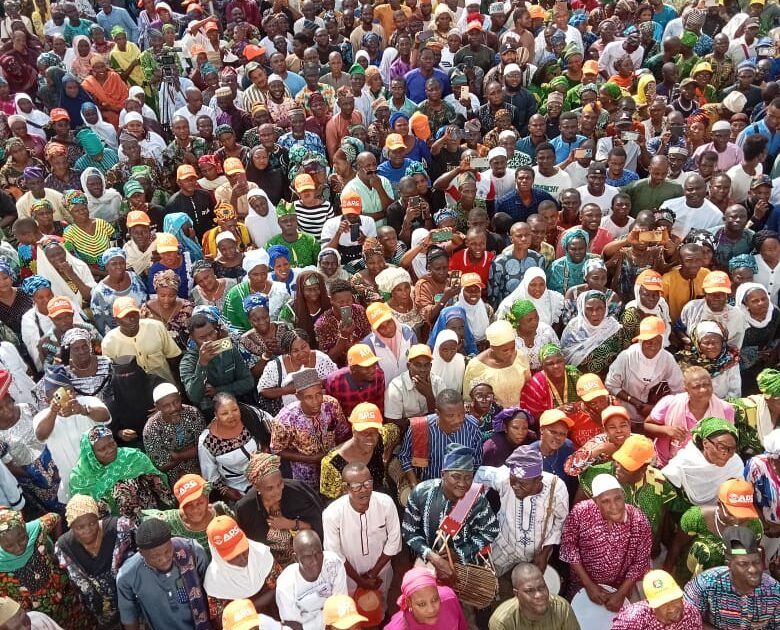Rauf Aregbesola, the former governor of Osun State and newly appointed Interim National Secretary of the African Democratic Congress (ADC), received a tumultuous welcome from a large crowd of supporters in Osogbo, the state capital, marking the commencement of a membership recruitment drive for the party. Aregbesola, who governed Osun State from 2010 to 2018, returned to a display of enthusiastic support, signifying his continued influence and the potential for the ADC to gain traction in the state. The gathering, predominantly composed of members of the Oranmiyan Group, Aregbesola’s political platform, underscored the mobilization efforts underway to establish the ADC as a significant political force.
The event, held at Aregbesola’s former campaign office in Osogbo, drew supporters from various parts of the state, including Ede South and Osogbo Local Government Areas. The sheer number of attendees created a noticeable traffic jam along the Osogbo/Gbongan road, highlighting the significant turnout and the public’s interest in Aregbesola’s political activities. The supporters, clad in the signature green attire of the Oranmiyan Group, demonstrated their unwavering loyalty and commitment to Aregbesola’s leadership, suggesting a strong foundation upon which the ADC can build its presence in the state. The enthusiastic reception indicated a potential shift in the political landscape of Osun State, as the ADC seeks to challenge established parties and vie for power in future elections.
Members of the ADC expressed optimism about the party’s prospects, emphasizing their commitment to expanding its membership base and preparing for the 2026 gubernatorial elections. Abiodun Alabi, a member from Ede South Local Government, highlighted the party’s growing strength and its ambition to secure leadership in the state. His statement reflects the confidence within the ADC ranks and their determination to make a significant impact in Osun politics. Similarly, Kazeem Badmus, an Aregbesola loyalist from Osogbo, confirmed the initiation of a membership drive, emphasizing the party’s strategic efforts to broaden its reach and attract new members. These statements underscore the proactive approach the ADC is taking to establish itself as a viable political force in Osun State.
The arrival of Aregbesola and the commencement of the membership drive represent a critical moment for the ADC in Osun State. The party aims to capitalize on Aregbesola’s popularity and established political network to gain a foothold in the state’s competitive political landscape. The significant turnout of supporters suggests a potential for growth and influence, but the ADC faces the challenge of translating this initial enthusiasm into sustained political momentum. The party’s success hinges on its ability to effectively organize, mobilize resources, and articulate a compelling political vision that resonates with the electorate.
The ADC’s strategy involves consolidating its support base through grassroots mobilization and strategic outreach. The focus on membership recruitment signifies the party’s recognition of the importance of building a strong foundation of dedicated members. By engaging with local communities and addressing their concerns, the ADC aims to establish a close connection with the electorate. This approach reflects a long-term vision of building a sustainable political movement that can compete effectively in future elections.
The political landscape of Osun State is characterized by intense competition between established parties. The ADC’s emergence as a new force introduces an element of uncertainty and potential disruption. The party’s ability to appeal to a broad base of voters will determine its ability to challenge the dominance of existing political structures. The 2026 gubernatorial elections will serve as a crucial test for the ADC, providing an opportunity to demonstrate its strength and gauge its level of support among the electorate. The party’s success in mobilizing its supporters and effectively communicating its message will be key factors in determining its electoral performance.


